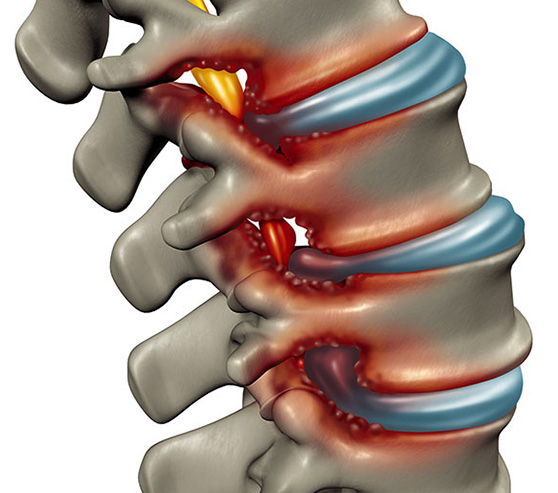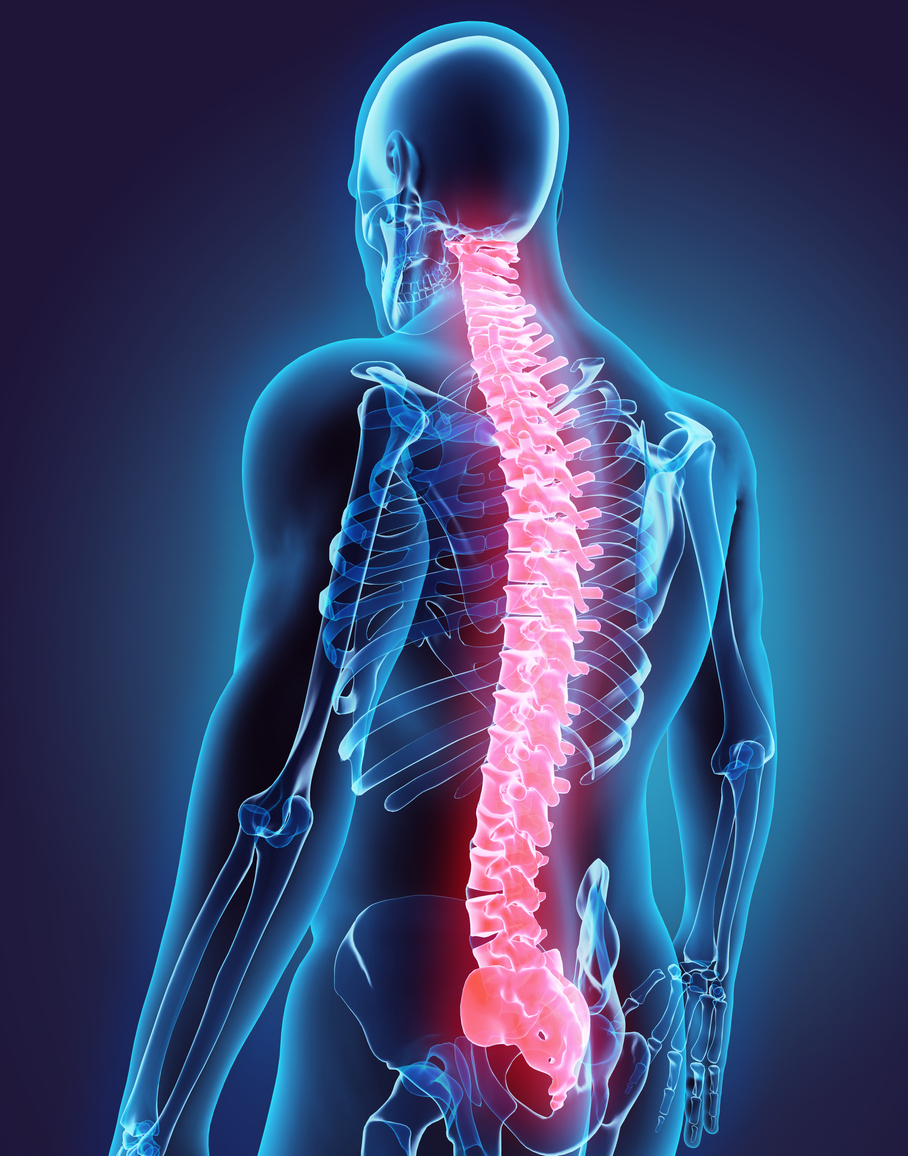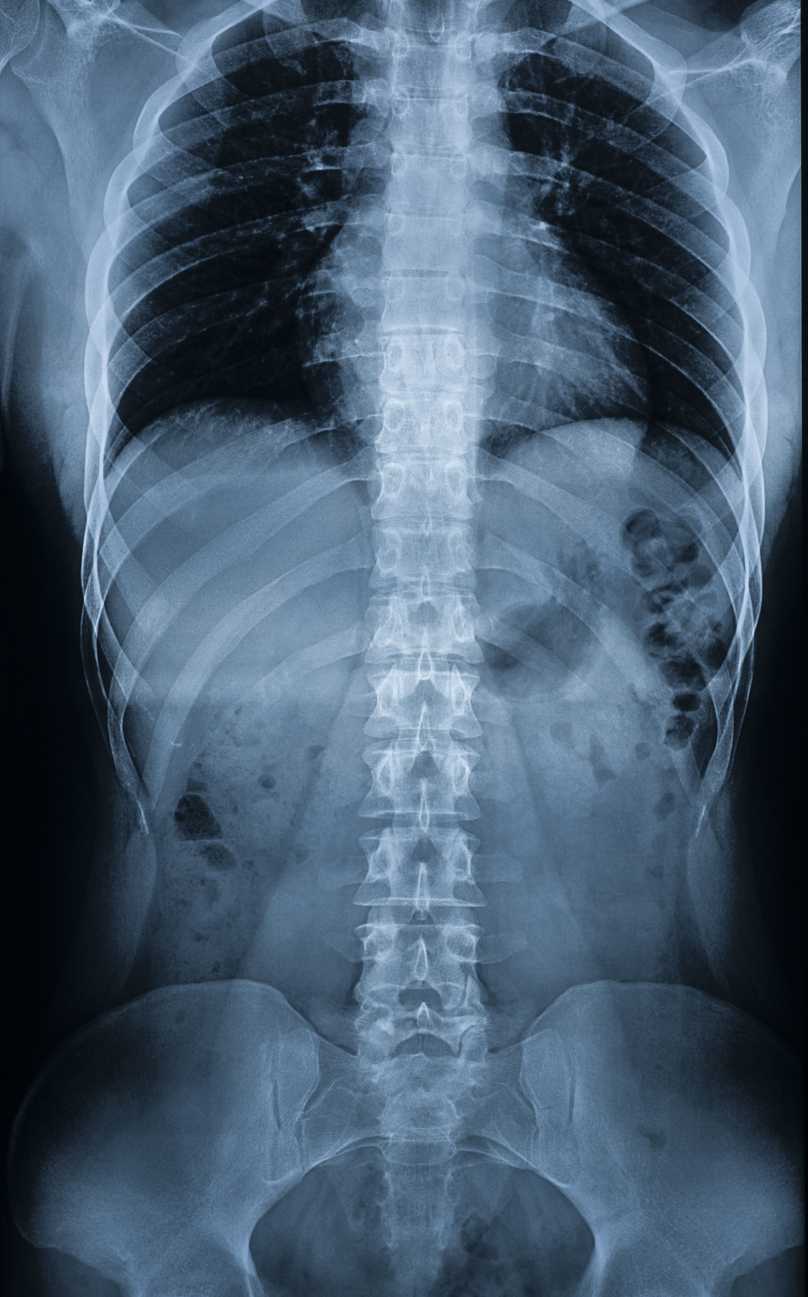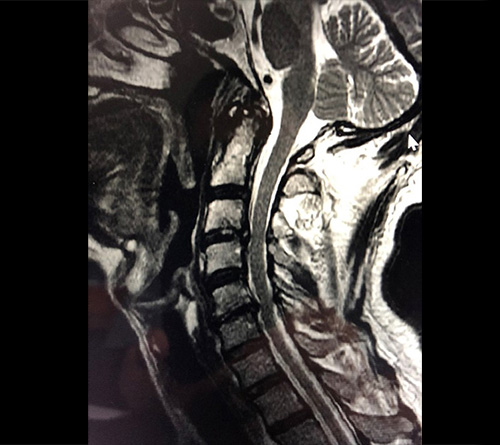
MYELOPATHY
Myelopathy refers to a medical condition that affects the spinal cord. It is a broad term that describes any disease, injury, or abnormality of the spinal cord that can lead to neurological symptoms. A variety of factors, such as degenerative changes in the spine, trauma, infections, tumors, or autoimmune disorders can cause myelopathy.
If you have myelopathy, you have experienced severe compression to your spinal cord. It is typically a gradual process with degenerative changes linked to aging. As a person ages, several things may start to happen:
- The discs between the vertebrae start drying out and begin to bulge or herniate
- The shape of the vertebra changes due to arthritis, causing spur-like protrusions
- The ligaments linking your vertebrae thicken
It is a combination of these factors that usually lead to a narrowing of the spinal canal, eventually leading to pressure on the spinal cord and cervical myelopathy.


How Is Myelopathy Diagnosed?
Myelopathy can be diagnosed through a combination of medical history, physical examination, and diagnostic tests. During the medical history, Dr. Shen will ask about your symptoms, medical history, and any other relevant information. A physical examination may involve assessing your muscle strength, reflexes, and sensation in various parts of your body.
Diagnostic tests may also be necessary to confirm a diagnosis of myelopathy. These tests may include:
- Imaging tests: Imaging tests such as X-rays, magnetic resonance imaging (MRI), and computed tomography (CT) scans can help identify abnormalities in the spinal cord, such as herniated discs or spinal cord compression.
- Electromyography (EMG): This test measures the electrical activity of muscles and nerves to assess nerve function.
- Spinal tap (lumbar puncture): This test involves taking a sample of cerebrospinal fluid (CSF) from the spinal cord to look for signs of infection or inflammation.
- Blood tests: Blood tests may be done to check for infection, inflammation, or autoimmune disorders that may be contributing to myelopathy.
The specific diagnostic tests used may depend on the suspected underlying cause of myelopathy. A thorough evaluation by a healthcare professional is necessary to accurately diagnose myelopathy and determine the appropriate treatment plan.
Myelopathy Symptoms
Symptoms of myelopathy result from the compression of the spine and the pressure put on the nerves housed within the spine. Symptoms depend on where along the spine your myelopathy is located and may include:
- Weakness in the arms or legs
- Numbness or tingling sensations in the arms or legs
- Difficulty walking or maintaining balance
- Stiffness in the neck or back
- Loss of fine motor skills, such as difficulty writing or buttoning clothes
- Difficulty with bladder or bowel control
- Changes in sexual function
- Shooting pain down the arms or legs
- Muscle spasms or cramping
- Loss of sensation in the hands or feet
- Generalized weakness or fatigue
- Difficulty with fine motor skills, such as buttoning clothes or writing
- Clumsiness in the hands or difficulty with fine motor skills.
The symptoms of myelopathy can develop gradually over time, or they can occur suddenly in response to an injury or other trauma. It is important to seek medical attention promptly if you experience any symptoms of myelopathy, as early diagnosis and treatment can help prevent further damage to the spinal cord and improve outcomes.


What Happens If Myelopathy Is Left Untreated?
If myelopathy is left untreated, it can lead to progressive worsening of symptoms and even permanent damage to the spinal cord. The consequences of untreated myelopathy depend on the underlying cause and the severity of the condition, but can include:
- Loss of sensation and movement: Myelopathy can cause permanent damage to the spinal cord, which can lead to loss of sensation and movement in the affected parts of the body.
- Paralysis: In severe cases, myelopathy can lead to paralysis, which can be temporary or permanent.
- Bowel and bladder dysfunction: Myelopathy can cause dysfunction of the bowel and bladder, leading to urinary and fecal incontinence.
- Chronic pain: Myelopathy can cause chronic pain in the affected area of the body.
- Decreased quality of life: The symptoms of myelopathy can significantly impact a person’s quality of life, making it difficult to perform daily activities and enjoy hobbies and interests.
- Respiratory problems: In rare cases, myelopathy can lead to respiratory problems, such as difficulty breathing or respiratory failure.
It is important to seek medical attention promptly if you suspect that you may have myelopathy to prevent further damage to the spinal cord and improve outcomes. Treatment options vary depending on the underlying cause and severity of the condition but may include medication, physical therapy, surgery, or a combination of these approaches.
This information is intended for general use and is not meant to replace consultation with a physician. Please, if you are experiencing pain or unusual symptoms, contact your provider. Also, if you are experiencing a medical emergency please call 911.
Shen-Spine Method To Myelopathy
Dr. Shen’s innovative surgical technique is known as Envision Spine Surgery. This procedure involves making a small skin incision of less than half an inch and inserting an endoscope – a tiny tube about the size of a #2 pencil – through the incision by carefully pushing aside the muscles. Within the tube, there is a light source, an irrigation channel, a working channel for micro-instruments, and a high-definition camera. The camera is connected to a monitor, allowing Dr. Shen to view your spine without causing damage to the muscles or ligaments.


How Long Does It Take To Recover From Myelopathy Treatment From The Shen-Spine Method?
The recovery period after surgery can differ between patients, regardless of the type of surgery. Nonetheless, Dr. Shen’s groundbreaking Minimally Invasive Endoscopic Spine Surgery is the least intrusive spinal surgery available to any patient. As a result, recuperation is frequently faster than with traditional spinal surgery.
Frequently Asked Questions About Myelopathy
Can Myelopathy Be Prevented?
While it is not always possible to prevent myelopathy, some steps can help reduce the risk, such as maintaining good posture, exercising regularly, avoiding smoking, and seeking prompt medical attention for any signs of spinal cord injury or disease.
Can Myelopathy Be Cured?
In some cases, myelopathy can be cured with appropriate treatment. However, the prognosis depends on the underlying cause and the severity of the condition. In some cases, the damage to the spinal cord may be permanent.
Is Myelopathy a Common Condition?
Myelopathy is relatively rare, but it can occur in people of any age. The risk of developing myelopathy increases with age and with certain medical conditions or lifestyle factors.
Ready To Take The First Step Towards A Pain-Free Life?
At Shen-Spine Surgery, we understand that dealing with chronic back or neck pain can be frustrating, debilitating, and affect your quality of life. That’s why we are here to help you get back to doing the things you love. Dr. Jian Shen is an experienced spine surgeon and offers a range of cutting-edge treatments and procedures to alleviate pain and improve mobility. Whether you suffer from spinal stenosis, herniated discs, or other spine conditions, Dr. Jian Shen has the expertise to provide you with personalized care and treatment options.
If you’re ready to take the first step towards a pain-free life, we encourage you to contact us today. Our friendly and knowledgeable staff is standing by to answer your questions and schedule a consultation with Dr. Jian Shen. Don’t let back or neck pain control your life any longer – let Shen-Spine Surgery help you get back to doing the things you love.
